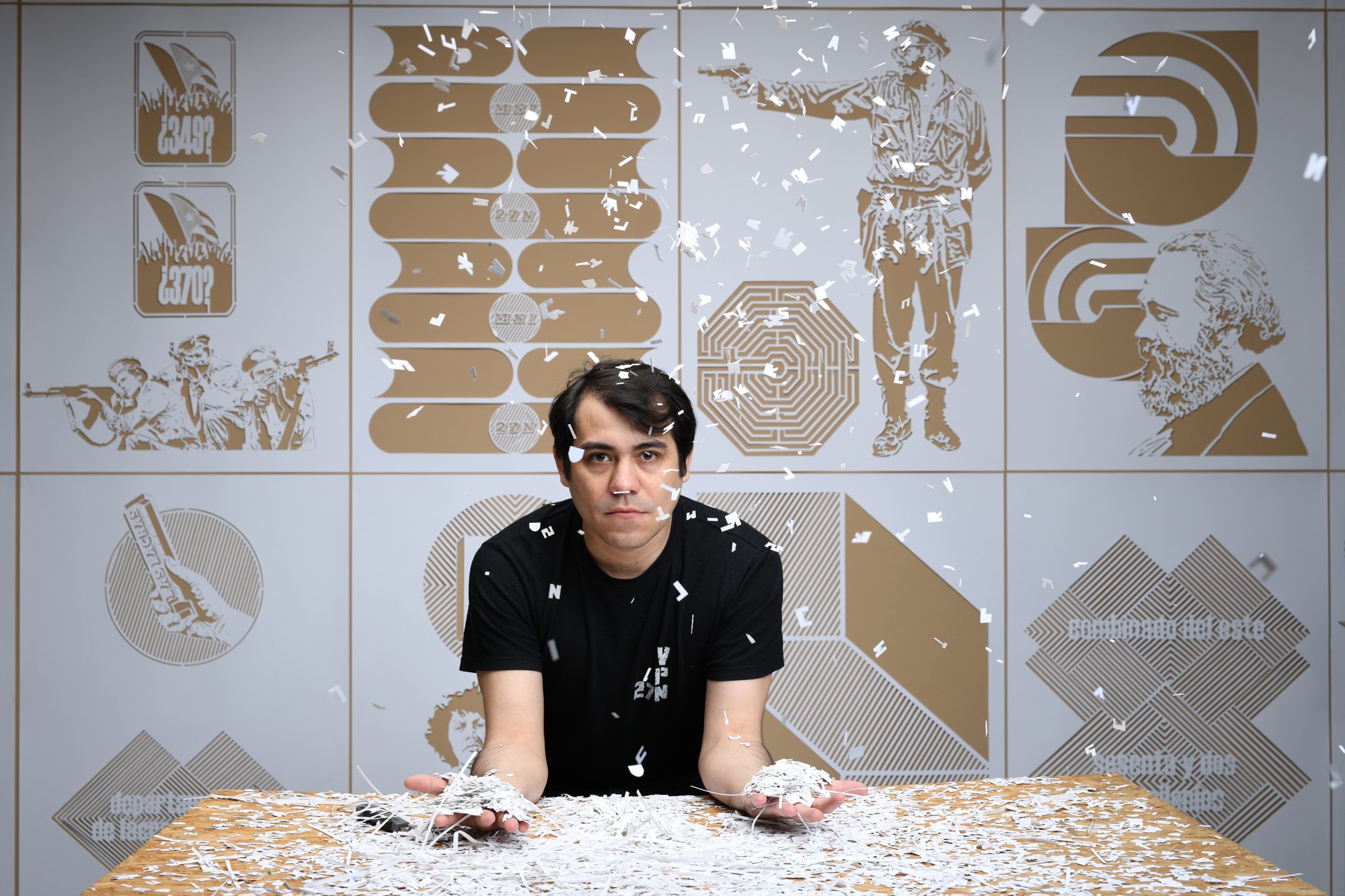
Cuban artist Hamlet Lavastida is the latest cultural worker to be arrested by Cuban officials in an increased crackdown on expression.
Lavastida was arrested on June 26, days after returning from a residency at Künstlerhaus Bethanien in Berlin, a prominent arts space. He is currently being held at Villa Marista prison, a jail known to hold political prisoners.
“It is tragic,” said dealer James Mayor, who represents the artist. “He is a sweet person, and his while his works are political in nature, it is in a heartfelt way. He was not just on the political bandwagon. I do not understand why people are so afraid of art.”
Lavastida had returned to Cuba after several months in Germany, where he was presenting new works. His arrest came during a mandatory quarantine period, according to Deutsche Welle.
“Hamlet Lavastida is a courageous artist who acts within the freedom of art,” a spokesperson from Künstlerhaus Bethanien told Artnet News. “With his works, he makes use of his right to freedom of expression.”
The residency is trying to gain further information about his status alongside N27, a Cuban activist group of which Lavastida is a member. The group is dedicated to protesting censorship of artistic expression.
A detail view of Hamlet Lavastida’s project “Cultura Profiláctica” on view at Künstlerhaus Bethanien, Berlin. This work is an artistic transcription of Javier Caso from his interrogation with authorities in 2020. Photo: David Brandt. Courtesy of the artist.
For his solo presentation at Künstlerhaus Bethanien, “Cultura Profiláctica,” which closed at the end of May, Lavastida presented a series of delicate works made from paper. One included the confession of Cuban activist and visual artist Javier Caso from his interrogation by authorities in 2020.
Lavastida also recently collaborated with Fusco on a project called “Padilla’s Shadow,” which entailed a reading of the Cuban poet Heberto Padilla’s 1971 statement against government censorship.
For the past several years, the Cuban government has been increasingly tightening its grip on artistic expression. A law named Decree 349 came into power in 2018, requiring artists to obtain official government approval before presenting work publicly.
The law has been condemned by the artistic community, including prominent figures like Fusco and Tania Bruguera. In December, hundreds of protestors met with the government to try to come to an official agreement, but the talks fell through.
In February, 9,000 people signed a petition for the removal of the current culture minister, Alpidio Alonso.